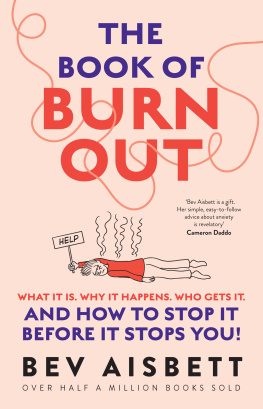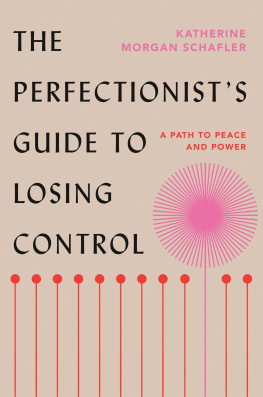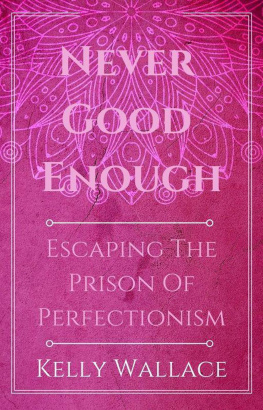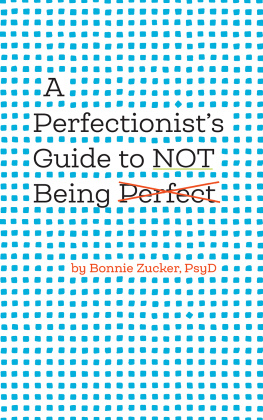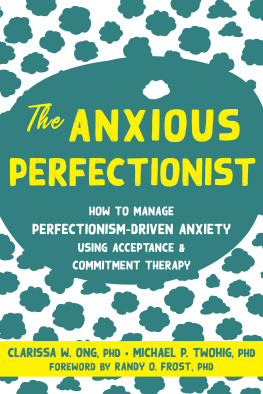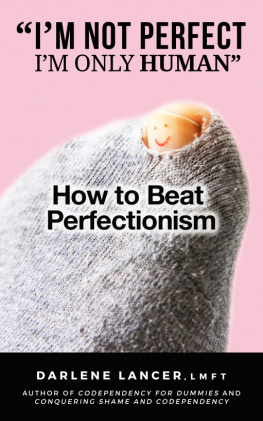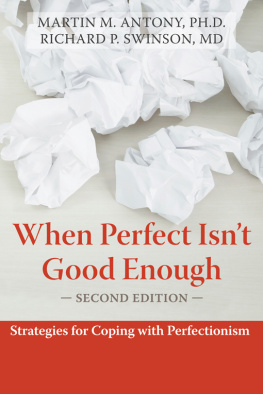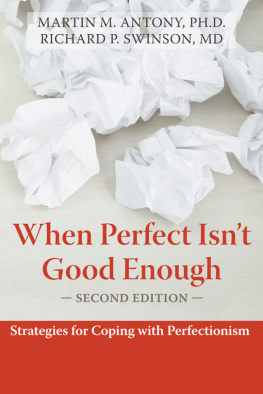Stop Dying Trying to Be Perfect
an allegory for the vulnerable
Kim Douglas Hiltunen
Trilogy Christian Publishers
TUSTIN, CA

Trilogy Christian Publishers
A Wholly Owned Subsidiary of Trinity Broadcasting Network
2442 Michelle Drive
Tustin, CA 92780
Copyright 2021 by Kim Douglas Hiltunen
Scripture quotations marked NIV are taken from the Holy Bible, New International Version, NIV. Copyright 1973, 1978, 1984, 2011 by Biblica, Inc.TM Used by permission of Zondervan. All rights reserved worldwide. www.zondervan.com. The NIV and New International Version are trademarks registered in the United States Patent and Trademark Office by Biblica, Inc.TM
No part of this book may be reproduced, stored in a retrieval system, or transmitted by any means without written permission from the author.
All rights reserved, including the right to reproduce this book or portions thereof in any form whatsoever.
For information, address Trilogy Christian Publishing
Rights Department, 2442 Michelle Drive, Tustin, Ca 92780.
Trilogy Christian Publishing/ TBN and colophon are trademarks of Trinity Broadcasting Network.
For information about special discounts for bulk purchases, please contact Trilogy Christian Publishing.
Manufactured in the United States of America
Trilogy Disclaimer: The views and content expressed in this book are those of the author and may not necessarily reflect the views and doctrine of Trilogy Christian Publishing or the Trinity Broadcasting Network.
10 9 8 7 6 5 4 3 2 1
Library of Congress Cataloging-in-Publication Data is available.
ISBN 978-1-63769-384-1
ISBN 978-1-63769-385-8 (ebook)
Contents
vii
ix
Does not wisdom call out?
Does not understanding raise her voice?
On the heights along the way,
where the paths meet, she takes her stand
Acknowledgements
My deepest appreciation to my wife, Grace Karen Hiltunen, who is Gods messenger of grace toward me. Thank you for cheering me through the mud and the muck, then up and over my mountains of ponderings. And thank you for just passing by when I sit staring outside.
Profound thanks to Mr. Floyd Long, posthumously, for praising my poetic recitation of a dying oak in his ninth-grade Creative Writing class fifty-two years ago.
To the woman who did not go beyond eighth grade but mastered Websters Dictionary, the only book in her childhood home: Thank you, Mom, posthumously, for giving me a love for words.
To the many kind souls who patiently tromped along and advised through all that ultimately became this piece, my sincere thanks: Grace Karen Hiltunen, for loving me when I am a grump; Ron and Anita Shoemaker, for challenging my title choices; John Sztykiel, for stressing good sources; David Reynolds, for multiple helpful suggestions and writers resources; and Lindsey Slivensky, for grammar checks and flow of the story. Special thanks to Gerald Alvaro for helping me to clarify what really matters.
To Michael Getzmiller and his dog, Polly, who crossed my path by Gods perfect timing: Thank you, sir, for your cool decorum when I said you looked like the old man in my story and Polly looked just like the dog.
To my grown sons, Eric and Nathan: May God richly bless you for forgiving my excessive punctiliousness while you were growing up. I love you, and I am proud of you!
introduction
Are You Burning Out?
This allegory features Earnest and Clarity. Earnest is a perfectionist who is burning out, and Clarity is trying to help. She is late, but not too late. Many had watched the man burn and had said some things but did nothing more. So he kept on burning. You may be able to relate in one way or the other. You know that you are not alone.
The World Health Organization (WHO) defines burnout as:
a syndrome conceptualized as resulting from chronic workplace stress that has not been successfully managed. It is characterized by three dimensions:
- Feelings of energy depletion or exhaustion;
- increased mental distance from ones job, or feelings of negativism or cynicism related to ones job, and
- reduced professional efficacy.
A cursory internet review will show that at least 20 percent of the American workforce is burned out. So it may even be the case that one in every five of your acquaintances has simply given up, either at work or at home or both. Too many people unnecessarily drag themselves along as wreckage among us.
The emotional toll is high, not only for the burned-out person but also for their family and friends, which will be developed in the course of this allegory. What is not addressed beyond a brief mention are the financial costs of burnout in the U.S. The basic breakdown follows. Stats are given for the whole population, then physicians, then nurses. Those two professions alone count for 16 percent. Also, note that this is pre-COVID, so we can safely assume the numbers to be significantly higher, especially in urban areas where the two waves of the pandemic killed so many and stressed care providers beyond their breaking points.
The Financial Cost of Burnout in the U.S.
Overall workforce: $190 billion per year.
Physicians: $17 billion per year
Nurses: $14 billion per year
No one wants to burn out, and most of us, like Clarity, want to help our overworked or perfectionist friends. Or we may be the ones needing the help. The problem is that most of us do not know what to say if we are burning out or we do not have thought-out approaches for helping others. Maybe it is just a timing issue. Or we just talk ourselves out of it for the sake of avoiding confrontation. Meanwhile, the burning continues.
The premise in this allegory is that perfectionists are the most vulnerable to burnout. Perfectionism has historical roots. E.g., something embarrassing or catastrophic may have happened in the past. It may have resulted in punishment or even someones death. To compensate, one might resolve to never be embarrassed again or cause anything catastrophic by doing everything just right.
So, over the years, the perfectionists reputation is all about accuracy, especially of the quantitative sort. They commit to reliably hitting clearly defined goals, wherever they may be, and their accomplishments are obvious to all. But to get there, the perfectionist pores over the minutest details repeatedly so as to not miss a thing. An otherwise enjoyable job for them becomes a sort of bondage to unreality. Errors terrify them, so they work fiercely to stay safe.
But where perfectionism takes its greater toll is in the qualitative. Questions of optics are criticallooking right, acting right, saying just the right thing, creating the perfect presentation, avoiding offense at all costs, etc. Like someone with anorexia nervosa, stuck with an obese self-impression, the perfectionist struggling with quality is unable to see their work as good enough, much less perfect. So re-work and re-working the re-worked product becomes an inescapable loop. Once the perfectionist is habituated, especially in the qualitative, it takes powerful persuasion to help them see the consequences of their self-slavery. Then, with those seen and with patient, diligent, and loving coaching, they are more likely to make the right decisions for the sake of their mental and physical health, but also for the health of all their relationships.
The margins in this story are wide for your notes. Significant themes are amplified in bold throughout, but you have space for your moments of epiphany.


